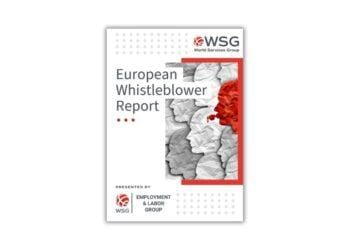Pending Legislation Aims to Close Gaps
While many expect the new administration and Congress to chip away at employee protections, several initiatives in Congress and the executive branch suggest a trend in the opposite direction for federal employees. Two Acts currently pending in Congress are designed to fill gaps in protection for federal employees and prevent agencies from enforcing gag orders.
Amid various reports that the Trump administration is silencing dissent in the executive branch, it may be surprising to learn that federal whistleblowers could soon receive greater protections for opposing wrongdoing. In December 2016, by voice vote, the House passed the Follow the Rules Act (FRA), designed to protect a federal employee who refuses to obey an instruction to engage in conduct that would violate a federal rule or regulation. Then in February 2017, early in the new Congress, the House Oversight and Government Reform Committee again approved the FRA legislation, advancing it forward. Around the same time, the Committee approved the Federal Employee Antidiscrimination Act of 2017 (FEAA), a law targeting gag orders and other restrictions that may prevent federal employees from reporting wrongdoing like fraud, waste, abuse or discrimination. Finally, on March 2, 2017, the U.S. Government Accountability Office (GAO) issued a report on a pilot program for federal contractor whistleblowers, along with recommendations for agency inspectors general on ways to ensure the effective implementation of the program. While it remains to be seen whether these initiatives will come to fruition, they are encouraging signs that Congress and federal agencies continue to recognize the important role whistleblowers play in promoting good government and the need to protect those who stand up for what is right.
Follow the Rules Act
The FRA was originally introduced in September 2016 and garnered a bipartisan team of cosponsors – four Democrats and five Republicans. Although the Senate never voted on the bill prior to the close of the 114th Congress, the bill was reintroduced on February 2, 2017. The law is meant to close a gap in protections for federal whistleblowers. At present, the definition of a prohibited personnel practice (PPP) includes taking action against an individual who refuses to violate a statute. The FRA extends these anti-retaliation protections to individuals who refuse to violate federal rules or regulations, which are usually more specific requirements and restrictions that are designed to interpret and implement federal statutes.
Thus, as its name implies, the Follow the Rules Act will ensure that an employee refusing to violate binding federal rules and regulations will have the same legal recourse as those refusing to violate a law passed by Congress. The Office of Special Counsel (OSC) can investigate PPPs; if it finds a violation and if the agency at issue does not remedy the PPP on its own, the OSC can order the federal Merit Systems Protection Board (MSPB) to take corrective action, such as a promotion, expungement of disciplinary records or reinstatement with seniority, back pay and lost benefits. If OSC either closes a complaint without taking action or if it fails to take action within 120 days after a complaint is filed, a whistleblower may appeal directly to the MSPB in what is known as an “individual right of action.” The ability to bring such complaints is an important one for federal employees to seek redress for wrongfully motivated adverse employment actions, and the FRA will close a simple but important loophole in the law.
Federal Employee Antidiscrimination Act of 2017
Like the FRA, a version of the FEAA enjoyed wide bipartisan support in the last Congress, passing by a unanimous 403-0 vote, and the law is again bridging the aisle in the new Congress. Rep. Elijah Cummings, who introduced the bill, issued a press release on February 2, 2017, after the House Committee on Oversight and Government Reform passed the FEAA. Rep. Cummings stated that the FEAA “will help ensure that federal employees can report discrimination without suffering retaliation and that such reports will be thoroughly, fairly and timely investigated and adjudicated [and] would also prohibit policies, forms or agreements that seek to prevent employees from disclosing waste, fraud or illegal actions to the Congress.”
According to the Oversight Committee’s summary of the bill, the FEAA would make three main changes in federal agencies to add transparency and accountability to the investigation of complaints of discrimination and other illegal conduct:
- ensure that the head of an agency’s Equal Employment Opportunity program reports directly to the agency head;
- expand notifications that agencies are required to provide when discrimination is found to have occurred, and require agencies to track and report whether such findings resulted in any disciplinary action; and
- prohibit nondisclosure agreements that seek to prevent federal employees from disclosing to Congress, the Office of Special Counsel or an Inspector General any information that relates to violations of laws, rules, regulations or instance of waste, fraud or abuse.
The third reform in particular may prove very important. It mirrors legislative and regulatory initiatives designed to ensure that private-sector employers cannot rely on confidentiality agreements to prevent employees from reporting to law enforcement, including agencies such as the Securities and Exchange Commission and the Commodity Futures Trading Commission. This anti-gag order trend reflects concerns about private and public employers buying employees’ silence in exchange for severance payments or as a condition of continued employment.
GAO Recommendations on the Contractor Whistleblower Protections Pilot Program
On March 2, 2017, the GAO, the federal government’s watchdog agency, issued a report on the government contractor whistleblower protections pilot program (pilot program). The pilot program was instituted as part of the National Defense Authorization Act of 2013 (2013 NDAA). Prior to the pilot program, the law extended whistleblower protections to some government contractors in the defense sphere, but left most government contractors without recourse if they were retaliated against for opposing fraud, waste or abuse in the execution of government contracts and grants. The 2013 NDAA drastically expanded the scope of those protections to include most government contractors for four years, with the success of the law to be assessed prior to its lapsing in early 2017. In December 2016, Congress enacted a law making these protections permanent.
The GAO’s report on the pilot program assessed, among other things, various agencies’ implementation of the pilot program, the number of retaliation complaints received and the handling and disposition of the complaints. The report focused in particular on four agencies that it concluded did not fully implement all aspects of the pilot program: the departments of Commerce, Homeland Security, Interior and State. Based on its findings, the GAO issued four identical recommendations for each of the four agencies. The recommendations are as follows:
- For the Inspectors General of each agency to develop or clarify existing guidance on the implementation of the pilot program, such as processes to identify levels of review during an investigation, and where the findings of investigations are to be reported;
- For the Secretary of each agency to develop policies and processes to help ensure that Federal Acquisition Regulation clause 52.203-17 [which mandates that certain federal government contracts include clauses requiring contractors to inform employees of their whistleblower protection rights] is inserted in new contracts and major modifications as appropriate;
- For the Secretary of each agency to develop policies and processes to help ensure that contracting officials can determine whether a modification is major and the applicability of the FAR whistleblower clause, and whether they are making their best efforts to include the clause into existing contracts during major modifications;
- For the secretary of each agency to develop policies and processes to help ensure that contracting officials communicate with contractors and subcontractors to help ensure employees are informed about the requirements and protections provided by the whistleblower protection pilot program.
These recommendations reflect the GAO’s commitment to ensuring that agencies give contractor whistleblower protections the strength that Congress intended.
Conclusion
With any new presidential administration, the fate of regulations and priorities of the previous administration are often in doubt. But it appears that, at least for the time being, government whistleblowers have advocates in various spheres of government. This is welcome news to those who recognize that the people in the best position to report and stop wrongdoing are those on the inside.



 Michael A. Filoromo, III is a partner with the whistleblower and employment law firm
Michael A. Filoromo, III is a partner with the whistleblower and employment law firm 






